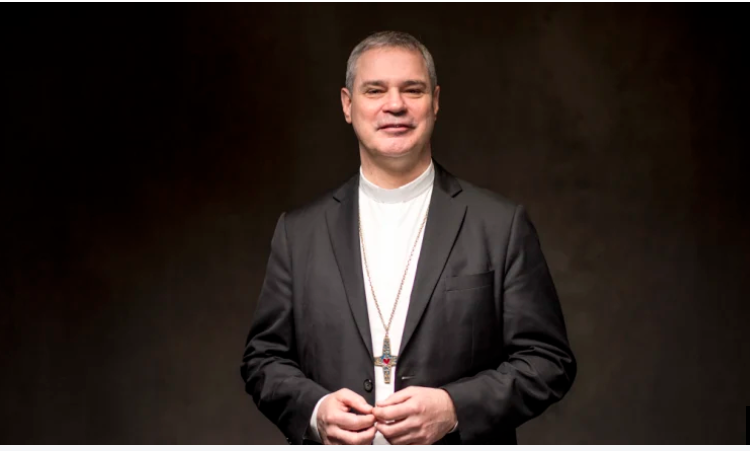
Kathmandu (Pahichan) November 20 – One of Australia’s most senior Catholics has suggested gay teachers would be more acceptable at religious schools if they lived far away from the school and their relationships were less visible.
Catholic Archbishop of Melbourne Peter Comensoli gave evidence to an urgent Senate inquiry on Monday ahead of federal government plans to strip schools of the right to expel LGBTI pupils.
Religious schools have faced resistance from parents and alumni as they fight to retain similar laws allowing them to hire and fire teachers on the basis of sexual orientation or gender identity.
Asked if a gay teacher at a Catholic school could get married without being fired, Archbishop Comensoli suggested it would depend on how visible their relationship was at the school and whether the teacher would still publicly support the school’s teachings.
“They’ve made it known privately to the principal that they’re in a same-sex relationship, but the person themselves is quite willing to speak publicly and act publicly within the school context in accordance with the mission and identity – there would be no question asked there I don’t think.”
The Archbishop said schools did not care whether staff identified as gay, lesbian or transgender, but were concerned about “the public nature of what someone might say or do in that regard”.
“It’s not just a matter of one’s attribute – it’s what one does with it that makes a difference,” he said. It was “when it becomes an act of advocacy” that problems could arise, Archbishop Comensoli said.
Catholic principals also told the inquiry they did not seek to dismiss staff on the basis of personal attributes such as sexual orientation, but wanted to draw the line at advocacy in the classroom or playground.
“There may well be a situation where someone becomes very active in their advocacy to cause distress in the community.”
“You raise a good point there,” Mr FitzGerald replied.
“We are looking for staff to actually have that consistency across the whole of their life – around what they believe, what they say they believe and how they act and behave,” he said.
“Students will pick up very quickly if there’s not that congruity, if there’s that hypocrisy between saying one thing in the school and something [else] outside the school.”
Annette Pereira, executive officer of the Australian Association of Christian Schools, said she was “very concerned” about the viability of faith-based schools if “hurried legislation” went ahead.
Ms Pereira indicated the government’s proposal to abolish those exemptions was unsatisfactory. “We are yet to see a proposal we believe is adequate,” she said.
Attorney-General Christian Porter is expected to introduce such legislation next week, which the government wants to pass in the final parliamentary sitting fortnight of the year.
Source : smh
Copyright © All right reserved to pahichan.com Site By: Sobij.